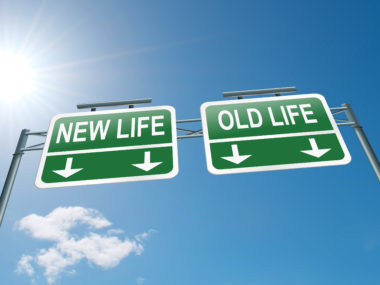The events in our external world these past few months have lead me to read, research, talk and write more about Fixed and Growth Mindsets.
Before we dive into this topic further, I would like to introduce you to Carol Dweck. Carol S. Dweck is an American psychologist. She is the Lewis and Virginia Eaton Professor of Psychology at Stanford University. Dweck is known for her work on the mindset psychological trait.
You can get a great overview of her work by watching her Ted Talk or reading her book Mindset: The New Psychology of Success. I would recommend both if you are interested in this topic.
Or, keep reading and I’ll cover the topic in my own style – a bit more high level, maybe with a few humorous examples, and no where near as intelligent as Dweck but hopefully still educational.
Let’s start with some basics:
According to Dweck – “In a fixed mindset, people believe their basic qualities, like their intelligence or talent, are simply fixed traits. … Alternatively, “In a growth mindset, people believe that their most basic abilities can be developed through dedication and hard work—brains and talent are just the starting point.”
Reading the above may lead you to believe that of course you have a growth mindset, right? You like learning. You know you can be better. You know there is room to grow and develop.
But do you really live that thinking in your everyday life?
I like to reroute the definition of a fixed mindset to one word: Proving.
Alternatively I’ll reroute the definition of a growth mindset to one word: Learning.
I find that those two words are much more accessible to me in formulating an understanding of a fixed vs. a growth mindset.
For most of my professional career at Accenture (you can read about my background here if you don’t already know my story), I lived in a fixed mindset.
I spent most of my time proving to others that I was good enough for the job I had. I viewed constructive criticism as an attack on my being. I felt ‘less than’ in a room full of people who had higher levels of education than I did. I thought that my boss was always right – because they were my boss.
My personal life has had it’s fair share of fixed mindset examples as well. Believing that the only way to lose weight was to exercise hard every day of the week and eat a very restrictive diet. Feeling ‘not normal’ when Rj and I chose to not have children and investing our money in travel adventures vs. buying real estate or new cars.
I saw challenges as difficulties. Hard events in my life that had to be overcome to prove (see, there is that proving word again) that I had what it took to ‘make it’.
Let me tell you this: Fixed beliefs hold you back from positive change my dear!
Enter in the day that I broke my fixed mindset chains and understood that a growth mindset was my ticket to ultimate success – professionally and personally.
You might think that that day was the day I decided to leave my corporate job and start my own business. Nope.
I actually started my own business with a very fixed mindset! I was going to prove that I could do this! That within one year I would be making the same amount of money I left at my corporate job. That I was going to be a New York Times Best Selling Author.
Nope. It took exactly three months and 5 days after I left my corporate job, and a bit of a melt down during a business development seminar in Costa Rica, before that darned growth mindset was born.
Good thing the brain can change.
My story is much too long for this one sitting, but suffice to say that once I opened myself up to learning. To constructive criticism. To understanding my fixed beliefs and how they were impacting my development. To being a bit softer and more compassionate with myself and my growth process.
The world became a much more enjoyable place for me – and my life became a much more gratifying ride.
Challenges became opportunities – for learning, for seeing things differently, for growing, for forgiving (myself and others).
The process became more important than the end result.
My need for improvement was not an epic failure.
You may be thinking at this point – yeah yeah, good for you Gayle. But what does this really mean? And how does this all impact me? And what can I take from this being I’ve already invested a few minutes in reading this far?
All good questions. Let’s go there.
Let’s put aside diving too deeply into the fixed mindset piece of this equation. You may have one. You may not. Either way, the real good stuff is in the growth mindset.
So let’s focus on growth mindset. We know what a growth mindset is, so our next step is to look at the why.
Why should we develop a growth mindset?
Because your success – personally and professionally depends on your ability to learn. Your ability to understand that you can change the way you think. Your ability to admit when you’ve done something ‘wrong’ and figure out how to do said thing better next time. Your ability to grow into the human being that you’ve always wanted to be.
Life is moving too fast for us to stay stagnant, fixed in our beliefs or continuing to try to prove ourselves against ideas or ideals that are no longer relevant for our happiness and success.
In your personal life – isn’t it time for you to find ways to stay healthy that you enjoy? That work for your body type? To start pursuing hobbies that make you happy? To start learning that your happiness and open-mindedness will lead to improvement as a partner, mother, father, sister, brother, daughter, son vs. trying to prove your worth through more ‘acceptable’ social norms?
In your professional life – isn’t it time for you to find the areas of enjoyment in your work and develop yourself in those areas? To learn from colleagues vs. competing with colleagues? To recognizing that your boss needs your point of view? To consider that making more money or getting that next promotion may not be your priorities right now?
And then there is the world we are living in right now. A growth mindset applied to a global pandemic could help you find the opportunities for learning, giving, being grateful, taking better care of yourself and being more present in your family life. A growth mindset applied to the anti-racism movement could help you find opportunities for learning where you may have unconscious bias, to learn how others human beings are treated in this world, to giving to a cause you wouldn’t normally consider, or to speak out for change that you may have been unwilling to do in the past.
Sounds good, right? But here’s the hardest step – how?
How can we develop our growth mindset?
Like we use different exercises to develop our physical bodies, we can use different approaches to developing our minds.
So here are three actions I take to help develop my own growth mindset:
1: View Challenges as Opportunities, not Challenges
This is a small shift in your mindset with such a big result!
Remember the age old adage “What doesn’t kill you makes you stronger?” Well, this is just that.
Challenges feel hard. Challenges feel big. Challenges feel like you have to prove something!
Opportunities are open ended. Opportunities are positive. Opportunities mean that you are learning and growing!
2: Take Risks
Get out there an do/think/act/propose something that you haven’t done before!
In a fixed mindset you’d be afraid to take risks because you are afraid of failure.
In a growth mindset, there is no failure – there is only improvement. And improvement is good – we can all look forward to getting better at something.
3: Stop Seeking Approval
You are just fine the way you are – you don’t need someone else to tell you so.
Others will disagree with you. Others will say you are crazy. Others will ask you why you did something. Listening to them gives them all your power.
Why would someone else be smarter than you when it comes to your thinking? Your desires? Your point of view? They aren’t! Sure, they may be able to give you input, constructive criticism, a different point of view, food for thought – all good things.
But their approval of you? Nope. You don’t need that.
*****
Our world is changing rapidly. Technology, business models, health, policies, attitudes, life models, human models. We have to change with the times. Embracing a growth mindset will determine how much we achieve in our lives – and how happy we will be with our own achievements.









